August 21, 2025 by 100XBuilds Team
Cybersecurity for Construction: Protect Your Business Data
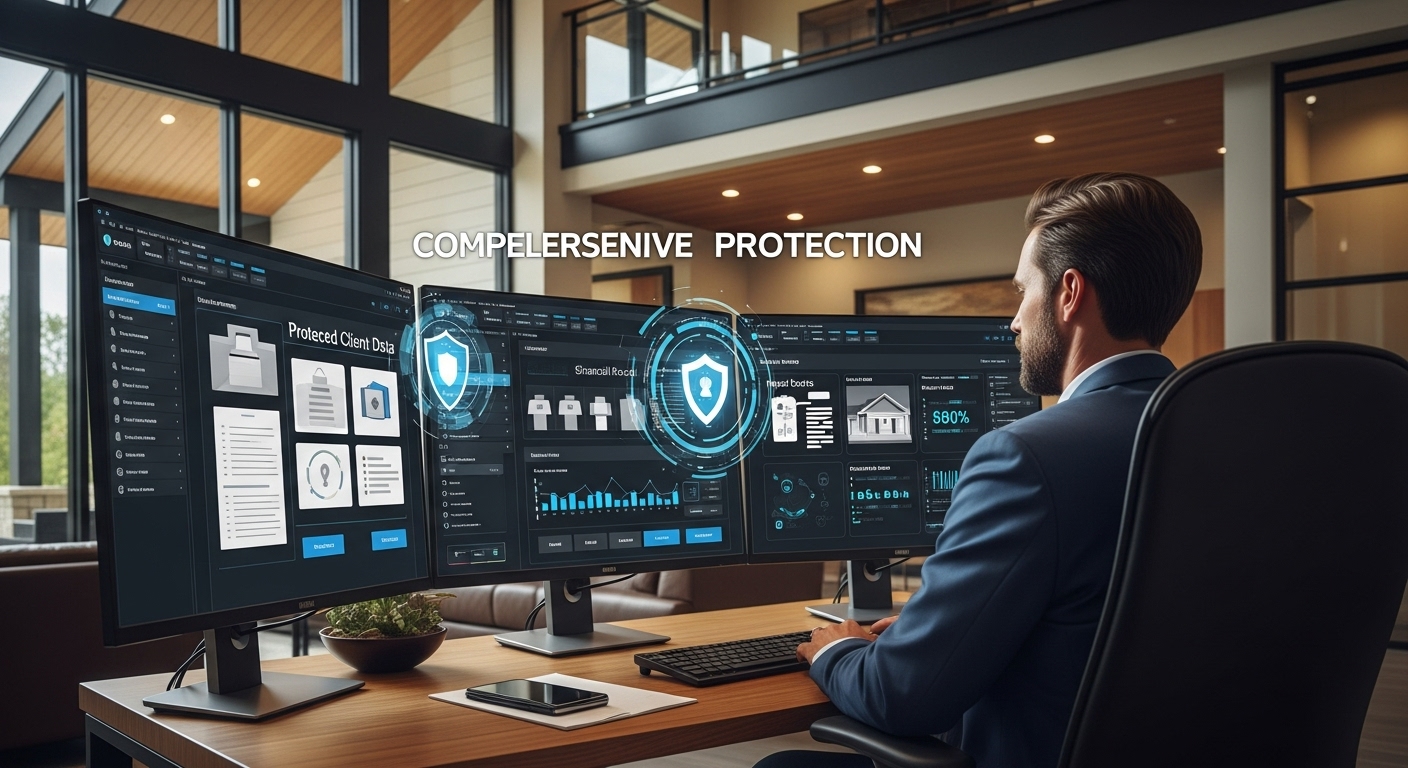
Reality Check: 43% of cyberattacks target small businesses, and construction companies face 5x more ransomware attacks than the industry average. One luxury builder in Texas lost $2.3M in client deposits when hackers infiltrated their payment systems through an unsecured email account.
The stakes couldn't be higher for luxury custom home builders. You're managing millions in client deposits, detailed architectural plans worth hundreds of thousands, and sensitive financial data that could destroy your reputation overnight if compromised.
The Hidden Vulnerability in Your Million-Dollar Projects
Most luxury builders focus obsessively on physical security—cameras, alarms, secure job sites. Yet 94% leave their digital assets completely exposed. Your business data represents the same value as the homes you build, but receives a fraction of the protection.
Consider this: A single data breach costs construction companies an average of $4.35M in recovery costs, legal fees, and lost business. For a luxury builder generating $10M annually, that's nearly half your revenue wiped out by preventable security failures.
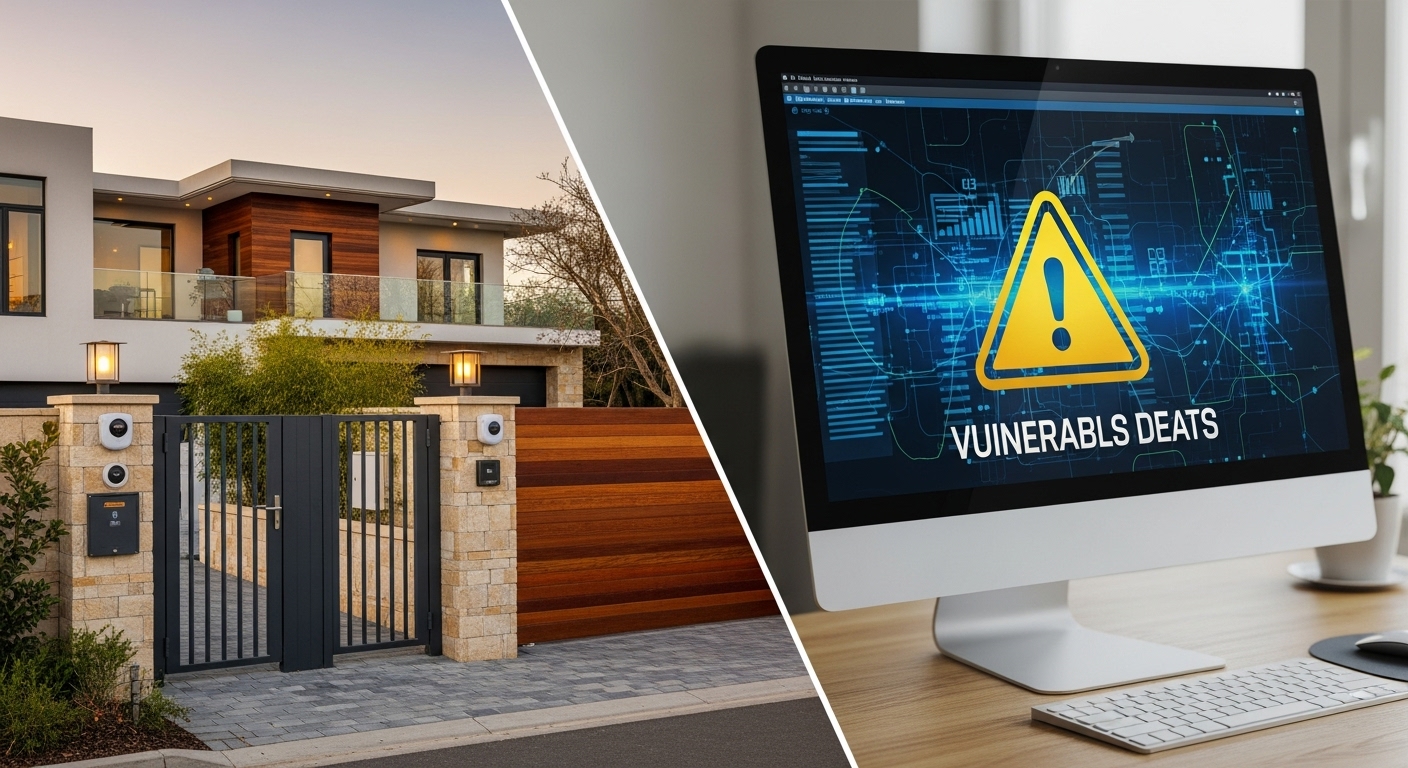
Critical Data Assets That Demand Protection
Your business houses five categories of high-value data that cybercriminals actively target:
Client financial information: Bank routing numbers, loan documents, and payment histories
Architectural plans and designs: Proprietary blueprints worth $50K-$200K per project
Vendor and subcontractor databases: Payment schedules, contracts, and sensitive pricing
Internal financial records: Profit margins, cost structures, and competitive intelligence
Project management data: Timelines, budgets, and client communications
Each category represents both immediate financial risk and long-term competitive advantage. Losing any single dataset could trigger client lawsuits, regulatory fines, and permanent reputation damage.
The $2.3M Email Mistake: A Case Study in Vulnerability
Heritage Custom Homes, a luxury builder in Dallas, learned this lesson the hard way. Their project manager received what appeared to be a routine email from their accounting software provider requesting password verification.
Within 48 hours, hackers had:
- Accessed client bank account information for 23 active projects
- Transferred $2.3M in client deposits to offshore accounts
- Downloaded architectural plans for 15 luxury homes
- Compromised vendor payment systems affecting 47 subcontractors
The recovery process took 18 months, cost $4.7M in legal fees and system rebuilding, and resulted in 12 client lawsuits. Heritage's revenue dropped 67% the following year as word spread through their affluent client network.

Essential Security Infrastructure for Builder Operations
Protecting your business requires layered security that matches the sophistication of modern threats. Here's your comprehensive defense strategy:
Email Security: Your First Line of Defense
Email represents 91% of successful cyberattacks against construction companies. Implement these critical protections:
Advanced threat protection: Deploy email filtering that blocks phishing attempts before they reach inboxes
Multi-factor authentication: Require secondary verification for all email accounts handling financial data
Encrypted communication: Use secure email platforms for sharing architectural plans and financial information
Staff training protocols: Monthly phishing simulation tests with mandatory security awareness training
Network Security: Fortress-Level Protection
Your network infrastructure must withstand sophisticated intrusion attempts:
Enterprise-grade firewalls: Deploy next-generation firewalls with intrusion detection and prevention
Secure Wi-Fi protocols: Separate guest networks from business systems with WPA3 encryption
VPN requirements: Mandate VPN usage for all remote access to business systems
Network monitoring: 24/7 automated monitoring with immediate threat response protocols

Data Backup and Recovery: Your Insurance Policy
Ransomware attacks specifically target backup systems. Your recovery strategy must assume complete system compromise:
3-2-1 backup rule: Three copies of critical data, two different storage types, one offsite location
Immutable backups: Air-gapped storage that cannot be encrypted by ransomware
Recovery testing: Monthly restoration drills to verify backup integrity and recovery speed
Incident response plan: Documented procedures for business continuity during security events
Client Data Protection: Building Trust Through Security
Luxury clients expect bank-level security for their personal and financial information. Your data protection protocols directly impact client retention and referral rates.
Financial Data Handling
PCI DSS compliance: Meet payment card industry standards for processing client payments
Encrypted storage: All financial data encrypted at rest and in transit
Access controls: Role-based permissions limiting financial data access to essential personnel
Audit trails: Complete logging of all financial data access and modifications
Architectural Plan Security
Your designs represent significant intellectual property value and client privacy expectations:
Digital rights management: Watermarking and access controls for all architectural files
Secure file sharing: Enterprise platforms with expiration dates and download limits
Version control: Centralized document management preventing unauthorized modifications
Client portal security: Dedicated secure portals for client access to project documents
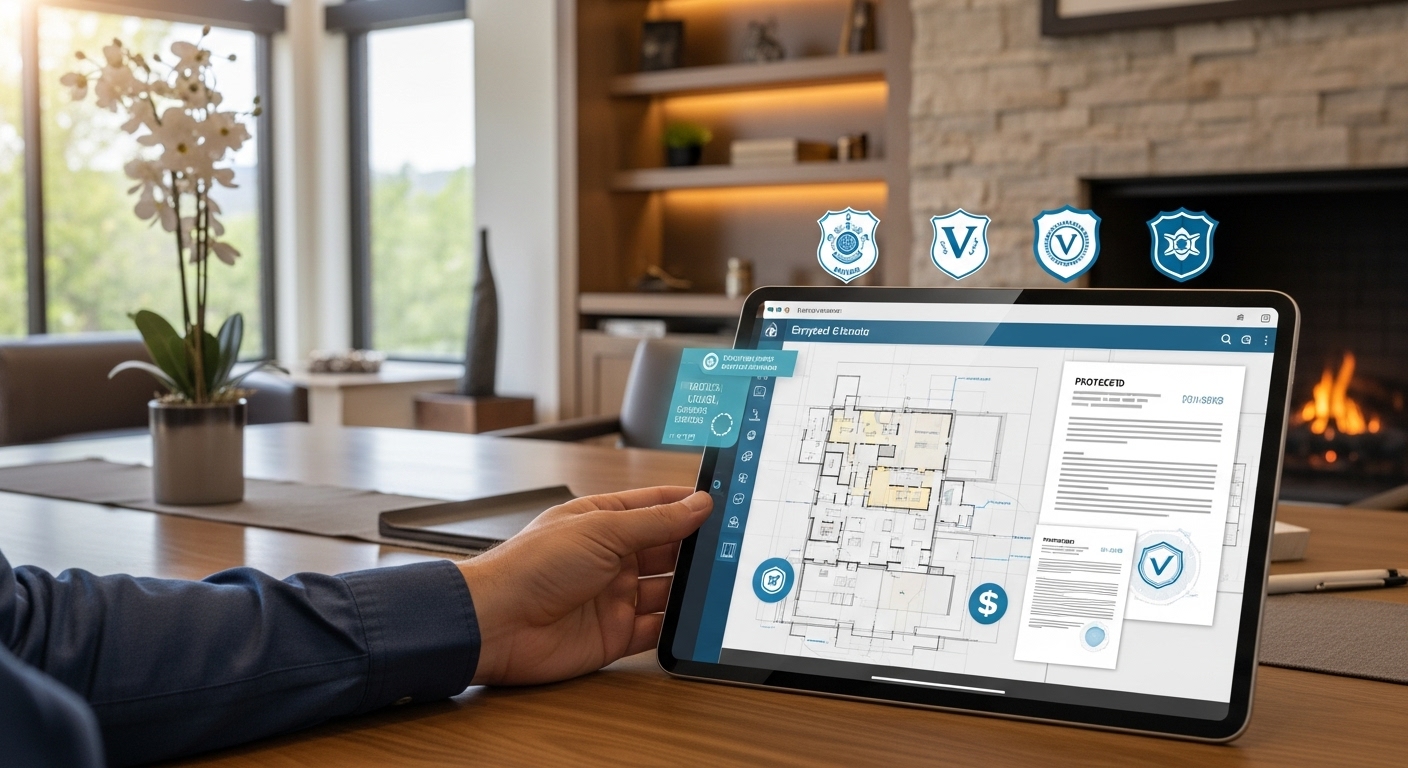
Vendor and Subcontractor Security Requirements
Your security is only as strong as your weakest vendor connection. Implement comprehensive third-party security standards:
Security assessments: Annual cybersecurity evaluations for all major vendors
Contract requirements: Mandatory security clauses in all vendor agreements
Secure communication channels: Encrypted platforms for sharing sensitive project information
Incident notification: 24-hour breach notification requirements for all connected parties
Mobile Device and Remote Work Security
Field operations and remote work create additional attack vectors requiring specific protections:
Mobile device management: Centralized control over all business-connected devices
App restrictions: Approved application lists with security vetting requirements
Remote access protocols: Secure VPN connections with multi-factor authentication
BYOD policies: Clear security requirements for personal devices accessing business data
Compliance and Legal Protection
Regulatory compliance protects against both cyber threats and legal liability:
Data privacy regulations: CCPA, GDPR compliance for client information handling
Industry standards: Construction-specific security frameworks and best practices
Insurance requirements: Cyber liability coverage with specific construction industry provisions
Legal documentation: Updated contracts addressing cybersecurity responsibilities and breach procedures
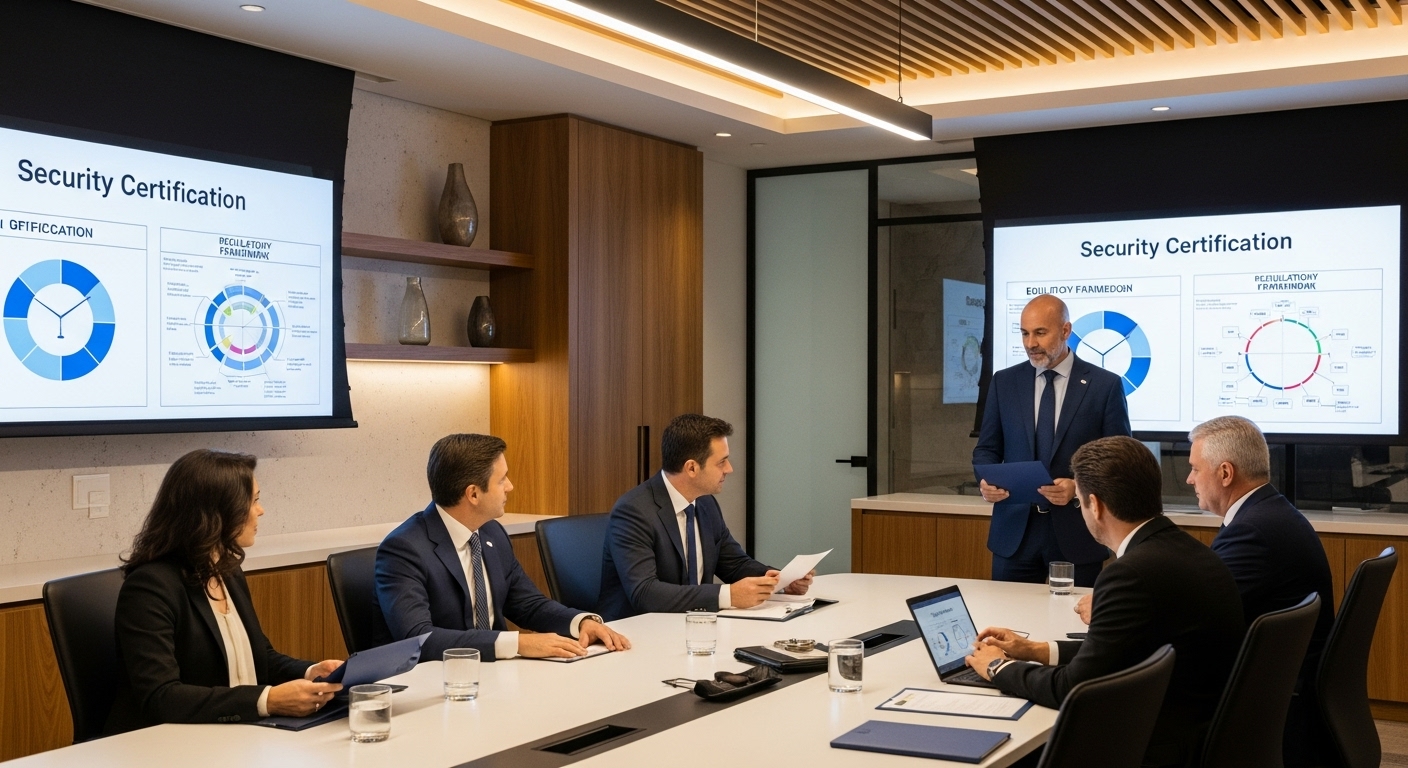
Implementation Timeline: 90-Day Security Transformation
Transform your cybersecurity posture with this proven implementation schedule:
Days 1-30: Foundation Building
- Complete security assessment and vulnerability analysis
- Implement multi-factor authentication across all systems
- Deploy enterprise email security and staff training program
Days 31-60: Infrastructure Hardening
- Install next-generation firewalls and network monitoring
- Establish secure backup systems with recovery testing
- Create incident response procedures and communication plans
Days 61-90: Advanced Protection
- Deploy client portal security and encrypted file sharing
- Implement vendor security requirements and assessments
- Complete compliance documentation and insurance updates
Measuring Security Investment ROI
Track these metrics to demonstrate cybersecurity value:
Risk reduction: Quantify potential loss prevention through security improvements
Operational efficiency: Measure time savings from automated security processes
Client confidence: Survey client satisfaction with security measures and data protection
Insurance savings: Document premium reductions from improved security posture
Competitive advantage: Track new client acquisitions citing security as decision factor
The Cost of Inaction vs. Investment
Consider the financial reality: Comprehensive cybersecurity for a $10M luxury builder costs approximately $50K-$75K annually. A single successful cyberattack averages $4.35M in total costs.
That's a 5,800% return on investment for preventing just one major incident.
More importantly, your reputation in the luxury market depends on absolute trustworthiness. Clients paying $2M-$10M for custom homes expect their builder to protect their information with the same precision used to construct their dream home.
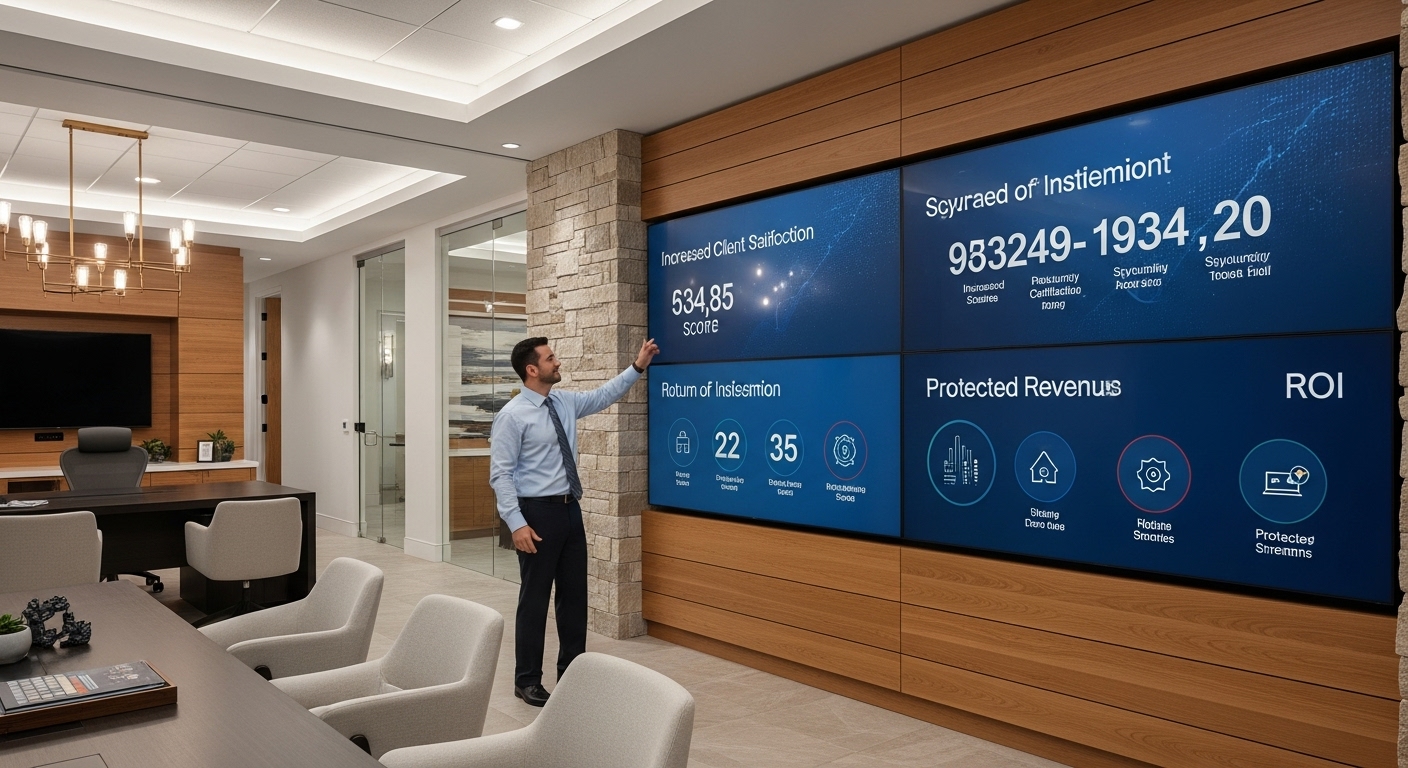
Your business data represents decades of relationship building, proprietary processes, and competitive advantages. Protecting these assets isn't just about preventing attacks—it's about ensuring your luxury building business thrives for generations.
Ready to bulletproof your builder business against cyber threats? Contact our cybersecurity specialists for a comprehensive security assessment tailored specifically for luxury custom home builders. We'll identify your vulnerabilities and create a protection strategy that safeguards your reputation, client relationships, and bottom line.
